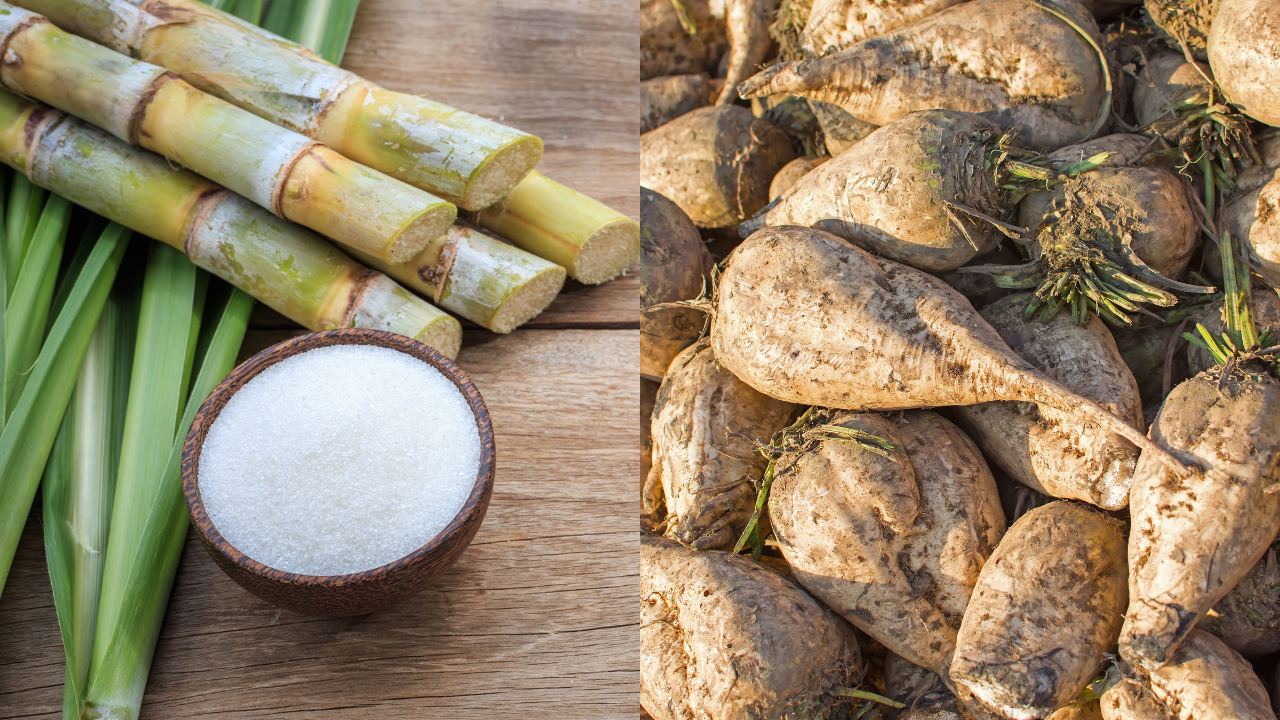Exploring the Distinctions in operation and Advantages In Between Beet Sugar Vs Cane Sugar
In the cooking world, the selection between beet sugar and cane sugar is not just regarding sweetness yet includes a nuanced factor to consider of flavor, application, and influence. While both sugars stem from various plants, each undergoes special production processes that subtly influence their attributes and viability for numerous recipes. As chefs and consumers increasingly focus on both the ecological and taste profiles of their ingredients, recognizing these differences comes to be critical. This exploration provides insight right into just how each sugar kind can best improve culinary creations.
Origins and Production Processes of Beet and Cane Sugar

Walking cane sugar, on the various other hand, comes from the sugarcane plant, a tropical lawn native to Southeast Asia yet now cultivated in tropical areas worldwide - beet sugar vs cane sugar. The production of cane sugar begins with the harvesting of cane stalks, which are crushed to launch the juice.

Nutritional Content and Wellness Considerations

When contrasting the dietary content of beet sugar and cane sugar, it becomes apparent that both kinds essentially supply the exact same caloric worths, with about 16 calories per tsp and no substantial nutrient variety. Each is composed nearly completely of sucrose, which is a basic carbohydrate that supplies quick energy but lacks vitamins, minerals, or fiber. This resemblance reaches their impact on wellness, particularly worrying blood glucose levels. Both sugars, when consumed in excess, can contribute to raised blood sugar levels, a risk element for diabetes and various other metabolic problems. Too much consumption can lead to weight gain and dental issues, as both sugars are just as cariogenic, advertising tooth degeneration. From a wellness perspective, moderating consumption of any from this source sort of sugar, whether from beet or cane, is recommended to prevent these potential unfavorable impacts on well-being. Thus, neither holds a distinct advantage over the other in terms of health and wellness benefits.
Flavor Accounts and Culinary Applications
Despite their comparable chemical frameworks, beet sugar and cane sugar differ discreetly in taste, which can influence their usage in numerous culinary contexts. Walking cane sugar typically lugs a tip of molasses, even in its polished kind, providing a cozy, caramel-like undertone that enhances baked items, coffee, and chocolate-based recipes. On the various other hand, beet sugar is identified by its very improved, neutral taste, making it a versatile sugar that does not modify the taste profiles of dishes.
Environmental Impact and Sustainability
While both beet and cane sugars are originated from plants, their environmental impacts differ dramatically due to the distinctive methods of farming and processing required for each. Sugar beet farming typically involves substantial mechanization, which can raise fossil fuel intake and carbon emissions. However, beetroots can be grown in cooler environments and call for much less watering, potentially decreasing water use compared to sugarcane. Sugarcane, on the other hand, is commonly expanded in exotic areas where it counts heavily on watering and a longer growing period, boosting its water footprint.
Additionally, the handling of sugarcane usually produces a substantial quantity of waste, including bagasse, which, although usable as biofuel, regularly adds to air contamination if melted inefficiently. Sugar beet handling makes use of more of the raw his response materials, leading to much less waste. Both sectors deal with challenges check my site in minimizing their ecological footprints, but recurring advancements in agricultural techniques and waste monitoring are aiming to enhance sustainability.
Economic Elements Influencing the Sugar Market
The financial characteristics of the sugar sector are considerably affected by worldwide market demands and profession plans. Aspects such as tolls, subsidies, and worldwide profession contracts play essential duties fit the affordable landscape. In areas where sugarcane or sugar beet manufacturing is subsidized, manufacturers might have a financial benefit that allows them to offer lower rates on the global market. This can develop disparities in productivity and market gain access to for producers in countries without such subsidies.
Furthermore, variations in international demand for sugar, influenced by dietary fads and industrial use in foodstuff, directly influence costs and production levels. beet sugar vs cane sugar. Weather likewise play an essential role, as they can significantly affect crop yields and, as a result, the supply chain. This irregularity presents a degree of financial uncertainty that can lead to investment volatility in sugar manufacturing sectors, affecting decisions from planting to market strategy
Final Thought
In final thought, both beet and cane sugar have special high qualities that match different cooking requirements. While cane sugar conveys an abundant taste ideal for enhancing baked items, beet sugar's nonpartisanship is best for lighter dishes.